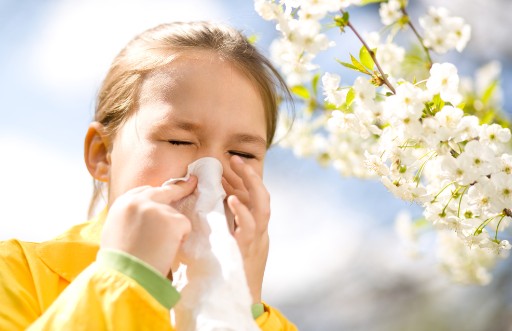As Every Year: Spring Arrives – And With It, Allergies. How to Cope?
Runny nose, watery eyes, unbearable itch? You probably belong to the group of people who develop an exaggerated immune response to pollen released by flowers. Everything you need to know about seasonal allergies.

Every year, right around the arrival of the Hebrew month of Nisan, I begin my sneezing parade. I always thought I was avoiding Passover cleaning tasks, but then realized it was real and not just me developing an "allergy to cleaning". It's simply an allergy typical for this season when the weather turns spring-like, and with it, seasonal allergies fill the air. Due to the blooming, pollen is released from flowers, trees, and grasses, creating havoc in the respiratory systems of many people.
The bodies of people prone to allergies produce an exaggerated immune response when encountering pollen particles, identifying them as intruders, viruses, bacteria, and more. This creates an inflammatory reaction that leads to the release of histamines—chemical compounds produced by the immune system, responsible for allergy symptoms like runny nose and watery eyes. So if you're experiencing symptoms such as runny nose, watery eyes, cough, and itchiness in the eyes and nose, you likely suffer from seasonal allergies. Asthma patients might also experience breathing difficulties and wheezing.

Common allergy triggers include grass, weeds, flowers, trees, mold, dust mites, pet dander, and rodent dander. Allergies have a genetic component and typically develop in childhood. If your parents or siblings suffer from allergies, you are likely at the same risk. In some individuals, allergies can develop later due to various environmental factors.
You can get tested by an allergy specialist to determine if you indeed suffer from allergies. The test involves injecting a small, diluted amount of an allergen (the substance causing the allergy) under the skin. If the individual is allergic to the substance, a red bump will appear.
How do you cope with this allergy? It's unlikely you can completely avoid contact with various triggers unless you stay indoors all day, but you can minimize damage: keep windows closed at home and in the car, especially during windy conditions.
You can use antihistamines that help reduce nasal secretions, sprays to relieve nasal congestion, including saline sprays, and eye drops to ease the itching. In more severe cases, nasal sprays containing steroids or treatments for asthma can be used if allergies lead to exacerbation.

